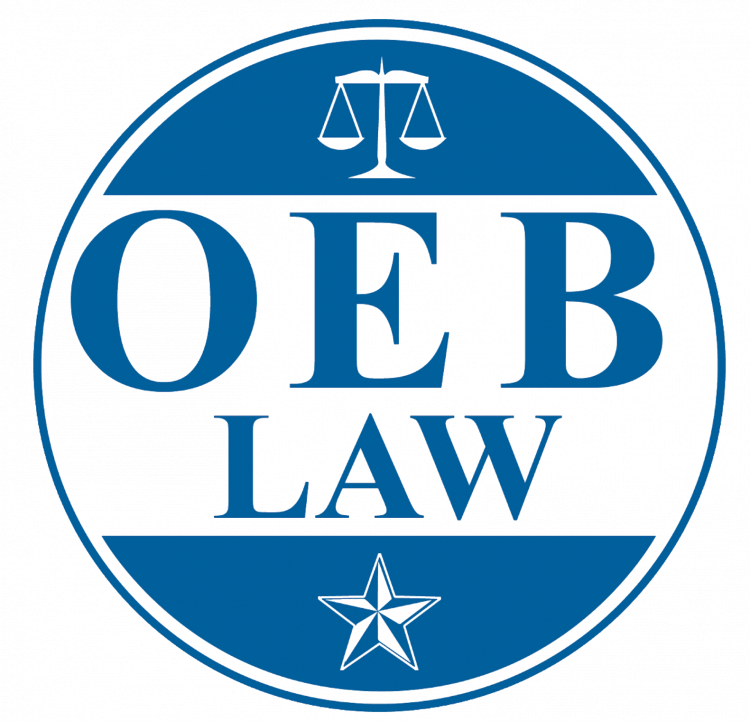Author: Ryan

If you were in a car accident, you may benefit from a lawyer’s help even if you were not at fault. Tennessee is a fault state. This means that the person who caused the accident is responsible for the injuries caused as a result and they may be liable for damages.
If I was not at fault, why do I need a lawyer?
The driver who was at fault might deny having caused the accident. His insurance company will have a financial motive to make it as difficult as possible for you to succeed on your claim. In fact, his insurance company may try to make it look as if you were actually the one at fault.
If this occurs, your lawyer can take action against the insurance company for a bad faith refusal to pay a valid claim. Your attorney will protect you from these tactics and work hard to get you all the compensation you deserve.
Does it matter if I was partly at fault in the accident?
In most accidents, more than one person is at fault. Tennessee uses a legal method called modified comparative fault to apportion damages when more than one person is at fault in an accident.
Under the modified comparative fault rule, you can only recover damages after an accident if you were less than 50% at fault. That means if you bear 50% or more of the blame, you are not eligible to receive any damages. If you are 49% or less at fault, your compensation is reduced based on your role in causing the accident.
For example, Linda and Ellen are both claiming damages of $10,000 after a car accident. Linda was 25% at fault for talking on her cell phone while driving. Ellen was 75% at fault for running a red light and crashing into Linda.
In this case, Linda would receive $7,500 for her damages, because her own negligence would reduce her damages by 25%. Ellen would receive nothing for her damages because she was more than 50% at fault for the accident.
What if my damages are more than the other driver’s insurance coverage?
If your damages are greater than the amount of the at-fault driver’s insurance coverage, your lawyer can pursue other ways of getting you the amount of compensation you deserve. This can include going after the personal assets of the person who injured you.
Sometimes your own insurance can help pay some of your damages that are in excess of the other driver’s insurance. If you have medical payments coverage on your insurance, personal injury protection (PIP) insurance, or uninsured or underinsured coverage, your own insurance might be able to help with your damages.
How will a car accident lawyer help my case?
Your attorney will collect documentation to prove your case, such as the police report and witnesses’ statements. He will also document your financial damages using medical records and employment records.
Using this information, your lawyer can evaluate your claim and advise you on a fair settlement amount. If you do not have a lawyer advising you on this, you might accept an offer that is far lower than what you need to recover from your injuries.
Having a lawyer involved can also keep you from settling before you know the full extent of your injuries. Many people who handle their own accident claims make the mistake of accepting an early settlement offer from the insurance company before they have completely recuperated from their injuries. They find out too late that they are going to have long-term problems from their injuries and that their initial settlement is not enough to cover them.
Your lawyer will also make sure you are not signing away more rights than you should during the settlement process. Insurance companies have teams of lawyers who write their settlement documents to protect themselves, not claimants like you.
Your car accident lawyer will also deal directly with the other driver’s insurance company on your behalf, working hard to get you everything you’re entitled to.
Your lawyer can deal with your own insurance company as well, if they are wrongfully denying payments under your policy.
If you win a large sum of money from your accident case, you can ask your lawyer to recommend financial professionals to help you with issues like taxes and financial planning. You do not have this advantage if you are trying to handle your case on your own.
What kinds of damages are available after a car accident?
There are two types of compensatory damages after a car accident: economic and non-economic damages. Economic damages are those that are easily measured in monetary amounts, such as medical costs, lost wages, and property damage. To measure these damages, your lawyer can use documentation like medical bills, your employment records, and repair or appraisal records. A vocational expert can also establish disability and loss of earning potential.
Non-economic damages are not as easy to quantify, even though they are real and valid damages. Pain and suffering, disfigurement, and loss of consortium are examples of non-economic losses that can result from a car accident. Your attorney will determine the appropriate amount of money you should expect to receive for these damages.
How can I hire a lawyer for a car accident that was not my fault?
If you suffered an injury in a car accident in Tennessee and it was not your fault, you may have a claim for your damages. The attorneys at OEB Law, PLLC will evaluate and handle your claim with expertise and compassion. Call us today at 865-546-1111 for your free, no-obligation consultation. We never charge a fee unless you get compensation.

A car accident can be a frightening, disorienting experience, especially if you suffered an injury as a result. If you were in a crash and are now experiencing back pain, follow these steps.
Do I need medical care?
You should seek immediate medical care if you have back pain following a car accident. Visit a doctor or the emergency room for an evaluation of your back, making sure your physician documents all symptoms and signs of injury. Make sure your medical records state that the reason you are there is for evaluation of back pain following the car accident. This will be your proof that the car accident was the cause of your back pain and not merely coincidental.
What if I felt fine at the scene of the accident?
Often, back pain does not show up at the scene of the accident. If you denied having injuries at the scene or refused medical treatment, it may be challenging to link your back pain to your accident. This is why it is important to visit the doctor or emergency room as soon as you experience discomfort and to make sure your doctor includes the date of the car accident in your medical history.
For example, Alan was in a car accident. He felt fine at the scene but woke up the next day with severe back pain. Instead of going to the doctor or emergency room, he tried to tough it out by taking over-the-counter medications. Finally, two weeks later, he went to the doctor and received a diagnosis of a dislocated vertebra.
Because of the delay in diagnosis and treatment, he also suffered complications and will not have an optimal recuperation. The insurance company denied coverage for Alan’s injury, claiming they were not caused by the car accident. Alan is now facing a stack of medical bills without the money to pay them.
On the other hand, Bernard was in a car accident, felt fine at the scene, but woke up the next morning with serious back pain. He immediately went to the emergency room, underwent a thorough medical evaluation, and received a dislocated vertebra diagnosis. His doctor treated his dislocation at once and Bernard recuperated quickly. His medical records clearly linked the back injury to the car accident. The insurance company did not fight Bernard’s lawyer on their claim and he received full compensation for his injuries.
What if I do not follow my doctor’s orders?
If you do not follow your doctor’s orders to mitigate your back injury, the insurance company may refuse to pay the full amount of your damages. Furthermore, any recommended treatment that you opt out of will not appear in the total calculation of your damages. If you postpone a treatment and reverse your decision later on, you will have to pay for it yourself. The insurance company will not give you more money after you settle your injury claim.
By way of example, Mary suffered a back injury in a car accident. After the initial medical procedure to treat the back injury, Mary’s doctor sent her to physical therapy. She found the physical therapy to be painful, exhausting, and time-consuming, so she did not complete the prescribed regimen. She settled with the insurance company. A few months later, she decided to try physical therapy again to relieve her chronic back pain. The insurance company refused to pay for the physical therapy because Mary had already settled her damages claim with them.
What else do I need to do after an accident?
Tennessee law requires that you file a report with the Department of Safety and Homeland Security if you are the owner or driver of a vehicle involved in a crash that resulted in an injury, death, or property damage of more than $400. This requirement is not satisfied by the police report of the officer at the scene of the accident. You must submit the report within 20 days of the crash. Failure to do so can result in the suspension of your driver’s license and registration.
This report may help you recover damages for your back injury by providing another piece of evidence linking your injury to the car accident.
What if I was partly at fault in the accident?
Tennessee follows a modified comparative fault law, which allows you to receive compensation for your injuries as long as you were less than 50% at fault in the wreck. The law reduces the amount of your recovery by the amount of your own negligence.
For example, Tim and Joe were in a car accident. Tim was speeding and Joe ran a red light. Tim was 20% at fault, while Joe bore 80% of the blame for the crash. Each has $10,000 in damages. In this case, Tim’s receives 20% less in damages—totaling to $8,000—due to his own negligence. Joe will not be able to recover anything from Tim because he was more than 50% at fault in the accident.
Should I consult a car accident lawyer?
If you suffered a back injury after a crash, you should contact a lawyer immediately. A car accident lawyer can help you with all aspects of your case, including filing your accident report with the state. It is essential that this form is accurate and filed within the 20-day deadline. Any mistakes or missing information may hurt your claim for damages and delay your recovery.
A car accident lawyer can also investigate the scene of the accident and collect the evidence needed to prove your claim. It is important that your lawyer is able to do this quickly, since evidence can deteriorate or even disappear if you wait too long. Skid marks will fade and disappear. Government agencies can correct road hazards after the accident. Eyewitnesses can become hard or impossible to locate. The sooner you talk with an attorney, the better.
If you have suffered a back injury in a car accident, the attorneys OEB Law, PLLC can help. We offer experienced and compassionate legal advice and we will keep fighting until we get you everything you deserve. Call us today at 865-546-1111 to set up your free, no-obligation consultation.

You may need a lawyer if the other driver blames you for causing the accident and the driver’s insurance company refuses to pay you for damages to your car or for your injuries. In this case, you may want to get a lawyer for a car accident even if it was not your fault.
In Tennessee, the driver responsible for causing a crash has to pay the other driver’s damages. So, why pay damages for an accident that you believe you did not cause? While the law does not require you to get a lawyer, one may help you prove that you did not cause the accident and help you recover compensation for your financial losses.
How Can a Lawyer Help Me Prove the Accident Was Not My Fault?
An experienced car accident lawyer can help you collect crucial evidence to prove that you did not cause the car wreck. Besides your statement, a lawyer may use a police report that explains how the accident happened, photos of the accident scene and damages to the vehicles, surveillance video that captured the accident (if available), and eyewitness statements.
At the OEB Law, PLLC, we work with subject matter experts to prove fault and causation in car accidents. If you suffered a serious injury in the accident, we may have medical experts review your medical records and provide a professional opinion about your present and future medical needs. We will use our resources to help you build a solid case to present to the other driver’s insurance company or to your insurance company.
Should I Go to Court to Prove That the Accident Was Not My Fault?
This is a possible legal option to discuss with your lawyer. Depending on the circumstances of your accident, filing a lawsuit may be preferable over filing an insurance claim for damages, especially if the accident involved serious or fatal injuries.
What If I Prove The Accident Was Not My Fault But the Other Driver Is Uninsured or Underinsured?
If you have Uninsured Motorist Coverage, a lawyer can help you receive compensation from your own insurance company to have your car repaired or recover wages you lost from work because of the accident, or pay your medical expenses. Uninsured motorist coverage also protects you when a hit-and-run driver causes you harm or damages your vehicle.
An Underinsured Motorist policy covers you when a driver’s insurance policy is not sufficient to cover all of your damages. In this instance, the driver’s insurance company only pays up to the driver’s policy limit. For instance, Tennessee requires vehicle owners to have a minimum of $25,000 in liability insurance for each injury or death per accident. So, if your damages totaled $30,000, and the at-fault driver has the $25,000 minimum liability amount, your underinsured policy will pay the remaining $5,000.
What Happens If the Other Driver’s Insurance Company Finds Me Partially Responsible for the Accident?
An insurance company will do whatever it can to hold you responsible for the wreck so the insurer will not have to pay full compensation for your claim. Nonetheless, you can still seek reimbursement for your damages even if an insurance adjuster finds that you contributed to the accident. But, your total amount of compensation decreases based on your percentage of fault. This is based on Tennessee’s comparative fault rule.
For example, if you are 10% percent at fault for the accident, and your damages totaled $30,000, you would receive $27,000 in compensation—a $3,000 reduction.
Can a Lawyer Help Me Determine the Value of My Insurance Claim?
Yes, a lawyer will total the expenses you incurred from the accident to determine the value of your claim. Your expenses may include costs to repair your car, medical bills for treating your injury, and mobility devices you purchased to assist you in recovering from your injury. You can also add non-economic damages to your claim, such as pain and suffering and the emotional stress the accident caused you.
When you have a lawyer on your side, you might receive more compensation than you initially expected to cover monetary losses from your car accident.
Contact Us Today
If another driver blames you for an accident that was not your fault, and you are not sure whether you can file an insurance claim, call OEB Law, PLLC at 865-546-1111 for a free case evaluation.
We can investigate your accident, help you file a claim and handle negotiations so you can focus on recovering from your injuries and the trauma of a car accident instead of disputing with insurance companies.

Every car accident is different. There are different factors, participants, and types of injuries and damages. As such, each case will earn plaintiffs a different settlement amount depending on the specifics of the accident.
If you want an accurate estimate of a possible settlement after a Tennessee car accident, contact a lawyer today. A car accident attorney can review the distinct facts in your case, provide you with an honest assessment of your suit, and help you find short-term and long-term damages you may have previously overlooked.
What should I do after a car accident?
If you were in a car accident, the first thing you should always do is attend to any emergency medical injuries that resulted from the incident. Once you have assessed any injuries and contacted emergency medical services, you need to notify police and take steps to file a police report.
A police report can provide you with an important piece of documentation about your car accident. Police will note your account of the accident, as well as the other driver’s, and will take statements from any eyewitnesses in the area.
While you are waiting for police to arrive on the scene, you can also gather information that can help you prove what happened during the accident. This includes:
- Contact information of any witnesses you can safely reach; and
- Photographs of the scene of the accident, including the position of the vehicles, the area around the accident, and the damage to your vehicle.
Be sure to acquire a copy of the police report to document the extent of damages and injuries that resulted from the accident.
What compensation can I collect in a car accident?
After a car accident, you may face extensive property damage and mounting medical costs, especially if the accident resulted in injury or disability. You can seek compensatory damages to cover these losses. Tennessee law allows you collect economic and non-economic damages.
Economic damages may include:
- Actual property damages resulting from the car accident;
- Medical bills resulting from the accident;
- Lost wages;
- Costs associated with loss of services, such as the price of child care or a maid service after a stay-at-home partner suffers a debilitating injury; and
- Ongoing medical care costs, such as rehabilitation, home remodels to accommodate a disability, and more.
Non-economic damages offer compensation for pain, suffering, and emotional distress. State law caps these claims at $750,000.
In order to collect economic or non-economic damages, you will need documentation proving the amount of money you lost due to the accident. An attorney can help you collect medical bills, employee statements documenting lost wages, and other bills to prove your right to compensation.
How can I seek compensation for my damages?
Because Tennessee is a fault state, the at-fault driver’s insurance company—or the driver himself—is responsible for the damages that resulted from the accident.
If the other driver is at fault for the accident, you have several options to recoup the damages you suffered as a result of the accident. You may:
- File a claim with the at-fault driver’s insurance company, providing documentation for your property damages and medical expenses;
- File a claim with your own insurance company, which can work with the driver’s insurance company or the driver to recover costs; or
- File a lawsuit in civil court against the driver.
An attorney can help you file these claims and will ensure that your requested compensation covers all of the damages you suffered in the accident. In some cases, an insurance company may try to minimize the settlement of the claim by trying to offset the fault determination or deny your claim outright. In these cases, an attorney can serve as a zealous advocate to get you the compensation you deserve.
What if I was at fault for my accident?
If you were partially to blame for the accident, you may still be able to recover compensation for your damages. Tennessee law follows the modified comparative negligence model for determining civil claims.
Put simply, a determination of fault will offset your ability to collect damages. If you to have $10,000 in damages, but were 10% at fault for the accident, you can only collect $9,000. If you are more than 50% at fault for the accident, you lose any entitlement to collect for damages.
When should I file a lawsuit?
In some cases, the at-fault driver may not have had adequate insurance to cover the damages that resulted from your accident. In these cases, you may file a civil suit to collect the damages directly from the driver.
Time is of the essence when filing a civil suit for a car accident. In most cases, you only have one year from the date of the accident to file a personal injury suit. An attorney can help review the unique facts in your case, determine the extent of your damages, and gather the evidence you will need to proceed with your case.
Should I contact an attorney about my car accident?
Car accidents suits, like many other types of personal injury cases, have strict filing deadlines and require extensive documentation and expert witness testimony to prove the alleged damages. An experienced attorney can meet those deadlines and provide the evidence needed to ensure that you are fairly compensated for your losses.
The car accident lawyers at OEB Law, PLLC can help ensure that your claim or lawsuit is sufficient to cover the extent of your damages, help you navigate the courts, and fight to get you a fair settlement. Call us today for a free consultation at 865-546-1111.
